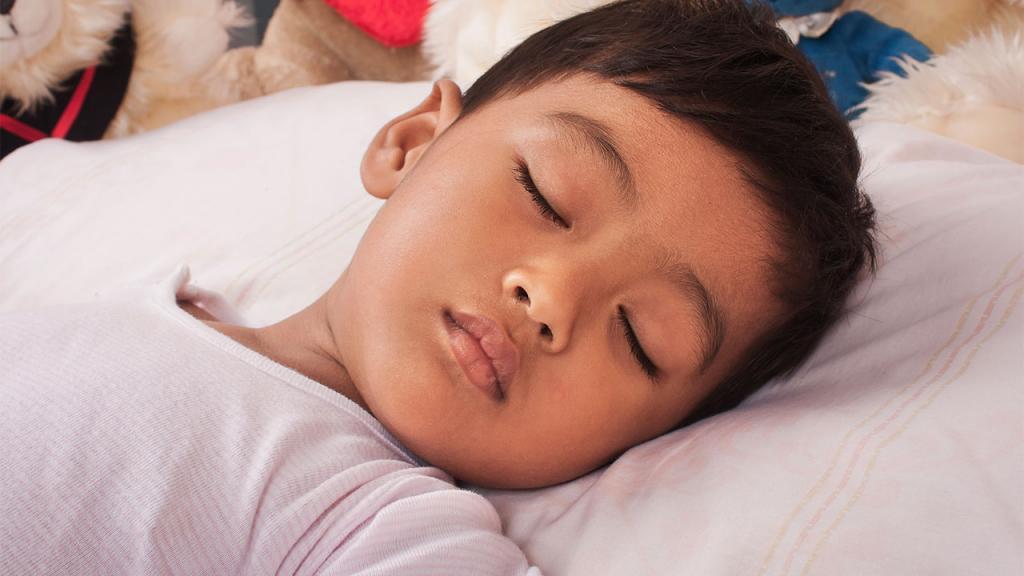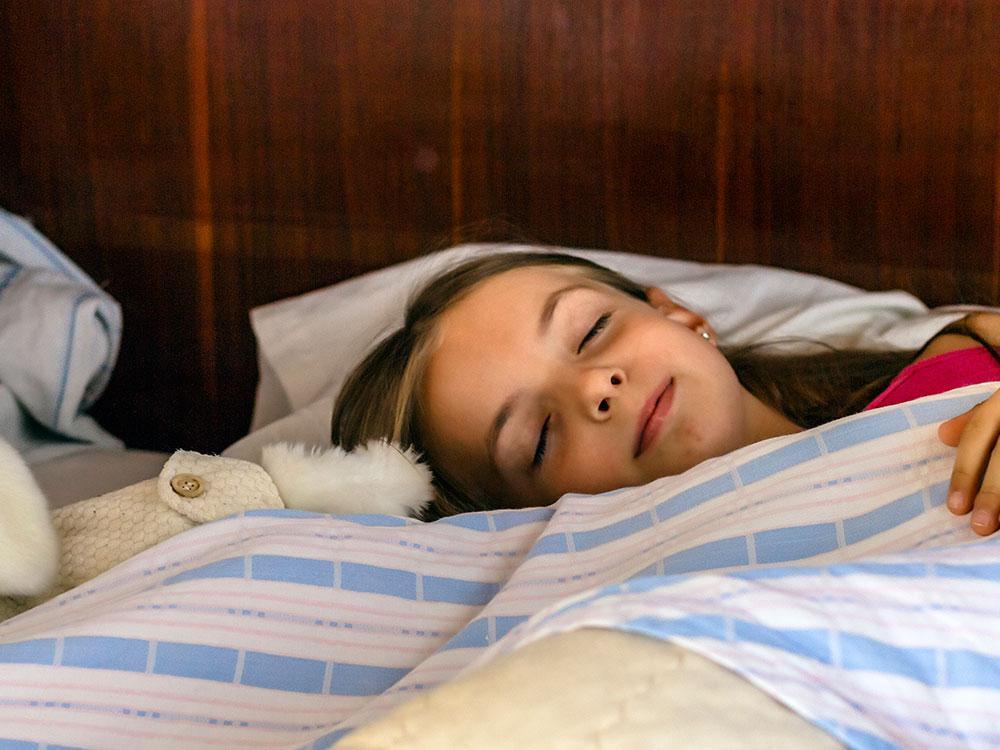An adequate amount of sleep is critical for your child’s overall well-being. Good sleep patterns can be learned as early as infancy.
Sleep deprivation can have a negative impact on a child’s ability to function during the day. They may struggle to sleep at night.
You are reading: How Much Sleep Do Kids Need? 8 easy tips for healthier sleep habits
How much sleep does my child need?
Every child is unique and special. People differ greatly in how much sleep they get. Including both overnight and daytime naps, this chart serves as a basic indication for how much sleep children require in a 24-hour period.
- Babies aged four to twelve months: 12-16 hours
- 11-14 hours for toddlers aged 1 to 2 years old
- 3 to 5 year olds: 10 to 13 hour day.
- 9-12 hours a day for children ages 6-12
- Teens (aged 13 to 18): 8-10 hours per day

Babies (birth to 4 months)
As many as 18 hours a day, newborns sleep for three to four hours at a time. Babies waking up to eat in the middle of the night is perfectly normal and healthy. You’ll notice that as your baby gets older, they’ll be more alert throughout the day and sleep for longer amounts of time at night.
Similarly to adults, infants and toddlers need the correct signals to know when it’s time to go to sleep. So, for example, if you always place your kid in their cot to sleep, they will come to associate this location with sleeping time and time again. Your kid may not get it right away, but with practice, he or she will pick it up.
A more consistent nap pattern should be expected about three months of age, when your baby’s sleep habits become more predictable and consistent. When your baby is tired, he or she will let you know. If you keep a sleep diary, you’ll be able to track down their typical sleeping schedule.
It’s a good idea to have a naptime regimen. Prior to going to bed, you may share a peaceful moment with your child and read a short story in a dimly lit room.
Consistent sleep patterns for your infant are essential for their development.
- Overtired babies have a harder time falling asleep. In fact, allowing your baby to nap throughout the day helps him sleep better at night, thus depriving him of naps would not help him stay asleep longer at night.
- Your infant should go to bed when they are tired yet alert. Put them on their backs in the crib or on a level, sturdy surface. Keep plush animals and cushions out of the baby’s cot.
- It’s quite acceptable to snuggle and rock your child. A baby can’t be spoiled just by being held.
- Your baby may find it easier to relax if they have a pacifier nearby. However, it is preferable to wait until nursing is going well before using a pacifier.
- Throughout the night, your baby will wake up. Before going to them, let them try to settle down on their own for a few minutes.
- Feeding and diaper changes at night should be done in a quiet, undisturbed environment. Maintain a dimmer lighting level.
Infants (4 to 12 months)
At this age, babies sleep an average of 14 hours a day, but anything less or more can be normal for your baby. Three naps are required by most babies by the time they are four months old: one in the morning, one in the afternoon and one in the early evening.
At some point in your child’s first few months, they may stop taking three naps per day and instead take two lengthier naps each day. There is no one-size-fits-all nap schedule for babies. As little as 20 minutes of snoozing may be plenty for some people, while others sleep for three or more hours at a time.
Your baby’s healthy sleep patterns should be a priority:
- As far as possible, stick to a regular daytime and nighttime sleep regimen.
- Maintaining a regular bedtime routine is essential. The “3 Bs” (bath, book, and bed) are commonly used by parents.
- Never give a bottle to a sleeping infant. Tooth decay may result as a result.
- Try not to take your baby out of his or her crib if he or she wakes up crying during the night around the age of six months old. By stroking their forehead or speaking softly, you can let them know that you care. Self-soothing is a vital part of getting your infant back to sleep on their own.
Toddlers (1 to 2 years)
In a 24-hour period, most children sleep between 11 and 14 hours.
Toddlers should be taught good sleep habits:
- It’s still crucial to maintain a regular sleep pattern for your youngster. It’s even more critical for your child to maintain the schedule you established throughout the first year.
- Avoid taking naps that are too late in the day because they can interfere with your child’s ability to sleep at night at this age.
- About a half-hour before sleep, use stories and calm activities to help your youngster wind down.
- If your youngster resists, be gentle yet firm.
- The bedroom should be a peaceful haven where you may rest peacefully at night with the lights dimmed and the noise level reduced.
- There is the possibility that listening to soft, calming music could provide some relief.
- As a child gets older, he or she may need a comfort object like a teddy bear or a blanket.
Children (3 to 5 years)
Ten to 13 hours a day is the normal amount of sleep for pre-schoolers. You can expect your child to take only one nap per day by the time they’re 3 years old, but many will still take a second nap throughout the day. They may require a nap on some days, but not on others. During this time, some youngsters give up afternoon naps altogether. In that time, you can give your youngster a chance to read and unwind.

It’s not uncommon for youngsters of this age to struggle with sleep and refuse to go to bed. Worries or nightmares might sometimes cause them to wake up in the middle of the night.
To help your preschooler get a good night’s sleep, here are some tips:
- Give your child no caffeine-containing beverages.
- Avoid using your phone or tablet before going to sleep. In the bedroom, no tablets, TVs, computers, or video games are allowed.
- It’s not uncommon for kids to put off going to bed. Let your youngster know what the parameters are, such as how many books you’ll read together.
- Make your youngster feel safe and secure by tucking him or her into bed.
- Don’t disregard your nighttime anxieties, they’re real. Reassure and soothe your child if they experience nightmares.
Why Do Babies Sleep so Much?
Babies sleep for more than half of the day because they are undergoing rapid physical and mental development. Sleep is essential for brain development, as it helps the construction of new neural networks and the consolidation of existing ones. A baby’s physical growth and development are also aided by enough sleep and nourishment.
Is It Normal For Babies To Take Naps?
Taking a nap during the day is fairly normal for babies, and it allows them to get in a good chunk of their total night’s sleep. Newborns normally nap for at least three to four hours a day, and while overall nap time falls as they get older, it’s typical for newborns to continue to nap for at least two hours a day..
Napping is not only normal, but it also has numerous advantages. Infants’ ability to retain specific memories is thought to be enhanced by the regularity with which they take naps. As a result, naps help to establish more generalized memory, which is essential for learning and brain growth.
When Do Babies Start to Sleep Through the Night?
Having a baby can be an eye-opening experience for individuals who are accustomed to sleeping for seven to nine hours a night without interruption. Most of their time is spent asleep, yet even newborns and babies rarely sleep through the night without awakening.
Babies are more likely to sleep through the night once they reach the six-month mark in terms of establishing a regular sleep schedule. Research has discovered that the exact date of this milestone might vary greatly.
No physical or mental effects were identified on the physical or mental development of children if they were not able to sleep for longer continuous times as a newborn, according to this same study.
The importance of newborns sleeping through the night has not been shown to outweigh the importance of total daily sleep duration for infants to this point in their development.
That being said, parents can take measures to help their children get a better night’s rest. Any concerns regarding frequent nightly awakenings should be shared with the pediatrician who is most knowledgeable with the baby’s individual circumstances.
How Much Sleep Do Premature Babies Need?
Many premature babies require more sleep than full-term babies. Premature newborns are not uncommon to spend 90 percent of their waking hours napping. Depending on how early they were born and how healthy they are, the quantity of sleep a preterm baby gets varies widely.
Preemies’ sleep habits eventually approach those of full-term newborns after the first year, but in the interim, they tend to be more irregular, with shorter naps and lighter sleep.
How Does Feeding Affect Sleep for Babies?
There’s some disagreement about whether or not a baby’s feeding approach has an impact on his or her ability to sleep. Even though some studies have revealed that breastfed babies wake up more frequently at night, other studies have found no difference in the sleep habits of breastfed and formula-fed newborns at all.
In general, the AAP recommends exclusively nursing for six months and then continuing with supplemental breastfeeding for a year or more because of demonstrated health advantages aside from sleep. Some evidence suggests that breastfed children sleep better in their preschool years, yet this hasn’t been shown conclusively.
What Can You Do if Your Baby Doesn’t Sleep Enough?
Start by talking to your pediatrician if you’re concerned about your baby’s sleep patterns. Keeping a sleep diary can assist your doctor in determining whether or not your baby’s sleep pattern is normal or indicative of a sleeping disorder.
Read more : Ultimate Guide to Choosing a Best Bed Frames 07/2024
Babies who have trouble sleeping through the night may benefit from behavioral modifications that prolong their sleep cycles. There are many ways to help a baby sleep better, such as minimizing how quickly they respond to wakings and gradually putting back their bedtimes.
Creating a consistent sleep schedule and habit, as well as ensuring that the infant sleeps in a peaceful and quiet environment, can help promote sleep hygiene. Safety measures should also be taken into consideration when it comes to infant sleep hygiene in order to prevent suffocation and sudden infant death syndrome (SIDS).
What are some common sleep problems?
- Insufficient sleep is an issue for some youngsters. Insufficient naps or late bedtimes may be to blame for your child’s irritability, crankiness, or inability to sleep through the night.
- If your child is unhappy because you aren’t present, it can be difficult for them to relax and fall asleep. Allowing them to sleep with their bedroom door open can help, as might giving them an extra-long cuddle before bedtime.
- Most youngsters will have nightmares at some point in their lives. Having a fever can produce nightmares, as can experiencing a traumatic incident. If your child needs your support, he or she may come to you. As you speak to your child, be patient and reassuring.
When should I talk to my doctor?
- If your child snores loudly on a daily basis, this could be a symptom of an issue.
- During the night, a child with sleepwalking may be partially awake, but not fully awake. Sitting up in bed and doing repetitive motions like scratching their eyes may be a sign that your child is having trouble sleeping. They might stand up and take a stroll around the space. The majority of the time, your youngster isn’t going to respond to your questions. Make sure the environment where your child sleepwalks is safe if he or she does so. Without disturbing your youngster, lead them back to sleep. Contact your doctor if the issue persists.
- Nightmares are not the same as night terrors. Screaming, rapid breathing, and the appearance of being awake are all symptoms of night terrors in children. If you wake your infant, they are likely to be confused and may have a difficult time returning to sleep. Youngsters as young as 18 months can experience night terrors, which are most common in children between the ages of 4 and 12. The majority of youngsters will outgrow them, but if they persist, you should see your doctor.
What if my child regularly has trouble falling asleep?
They can be up for long periods of time since some children have difficulty going asleep on their own. Caffeine from soda and energy drinks, as well as excessive screen time before night, may be to blame.
- Avoid including screen time in your child’s bedtime ritual if they are spending too much time in front of the TV or playing videogames.
- Drinking or eating anything with caffeine is strictly forbidden for children under the age of 18.
- Reading, listening to peaceful music, or laying in bed with your child talking quietly about their day are all ways to help your child wind down before bed.
Make an appointment with your pediatrician if none of these factors apply to your child’s sleep issues.
8 easy tips for healthier sleep habits
- Make sure your child has a bedtime that allows them to sleep for at least 10 to 11 hours at a stretch. Make your child’s bedtime 15 to 20 minutes earlier every few days if he or she isn’t going to bed early enough.
- Set a consistent bedtime. A 30 to 45-minute difference between your child’s bedtime and wake-up time on weekends and weeknights is a good rule of thumb.
- One week before to the start of school, establish a regular wake-up time.
- Create a relaxing and sleep-inducing nighttime ritual for your child, even if they are older.
- At the very least, 60 minutes before going to bed, turn off all electronic devices.
- Avoid sugary and caffeinated beverages, especially in the later hours of the day.
- It’s important to keep your child physically active throughout the day in order to help them wind down and prepare for bedtime. At the very least, make an effort to get moving for an hour a day. “Outdoor play, particularly in the morning, is helpful because exposure to natural light helps keep your child’s circadian rhythm in sync,” Dr. Shah says.
- Setting a good example by prioritizing your own sleep is crucial, as it is with many other habits.
FAQs
What Is the Best Bedtime for My Child?
The best time to put a child to bed is largely determined by the child’s age. Young children tend to go to bed sooner than older children because the required amount of sleep for children typically declines with age. In order to maintain good sleep hygiene, it’s more vital to make sure your child goes to bed and wakes up at the same time every day.

In addition, it’s important to keep in mind that cultural differences exist when it comes to bedtime. Parents in other cultural groups may allow their children to stay up later at night, whilst some cultures place an emphasis on going to bed early.
What if My Child Is Not Getting Enough Sleep?
In order to help their children obtain a good night’s rest, parents should keep in mind that minor deviations from age-specific sleep length recommendations are usual.
It’s also a good idea to consult with your pediatrician or family doctor about your child’s sleep patterns if they appear to be abnormal or if they’re having difficulties sleeping for no obvious reason. Your child may have a treatable sleep disorder or health condition that is interfering with their sleep.
When it comes to helping your child obtain a good night’s sleep, there are a few things you can do. Establishing bedtime routines with regular sleep and waking hours, banning devices that generate blue light from bedrooms, and arranging physical exercise during the day can all help children prepare for a good night’s rest in the evening. Parents who model healthy habits and good sleep hygiene can frequently inspire their children to do the same.
Should My Child Be Napping?
Children under the age of 5 are most likely to get a part of their recommended daily sleep from naps. Because young children frequently do not sleep through the night, daytime naps are essential for ensuring that they get enough sleep to function normally throughout the course of a 24-hour period.
Taking a nap during the daytime has been linked to optimal cognitive development in young children. Daytime sleep requirements alter with age, and most children quit sleeping between 2 and 5 years old.
Your child may be ready to stop napping if they have trouble sleeping at night. Alternatively, if they appear sleepy or drowsy during the day, it may be too early to give up the nap. Once your child stops napping, you may need to push bedtime earlier so they still sleep enough overall.
How Do I Know if My Child Is Getting Enough Sleep?
As a parent, you may be able to tell when your child is ready to quit napping. Alternatively, if they appear sleepy or drowsy during the day, it may be too early to give up their nap. If your child is no longer napping, you may need to move their bedtime earlier in order to ensure they get a good night’s rest.
- Having difficulty getting out of bed in the morning
- Their eyes have dark circles under them.
- Tiredness or sleepiness that occurs during the workday
- Irritability and mood swings
- My mood swings and irrational behavior
- Anxiety and mood swings
Do Teenagers Need as Much Sleep as Adults?
The recommended amount of daily sleep for teens falls between eight and 10 hours, which is slightly more than the seven to nine hours recommended for young adults and adults. Unfortunately, many teens do not reach the eight-hour threshold due to employment, academic demands, early school start times, and social pressures. According to surveys, sleep durations for teens have been steadily decreasing over the last few decades.
The recommended amount of daily sleep for teens falls between eight and 10 hours, which is slightly more than the seven to nine hours recommended for young adults and adults. Unfortunately, many teens do not reach the eight-hour threshold due to employment, academic demands, early school start times, and social pressures. According to surveys, sleep durations for teens have been steadily decreasing over the last few decades.
Source: https://bestpillowsleepers.com
Category: Sleep Advisors










